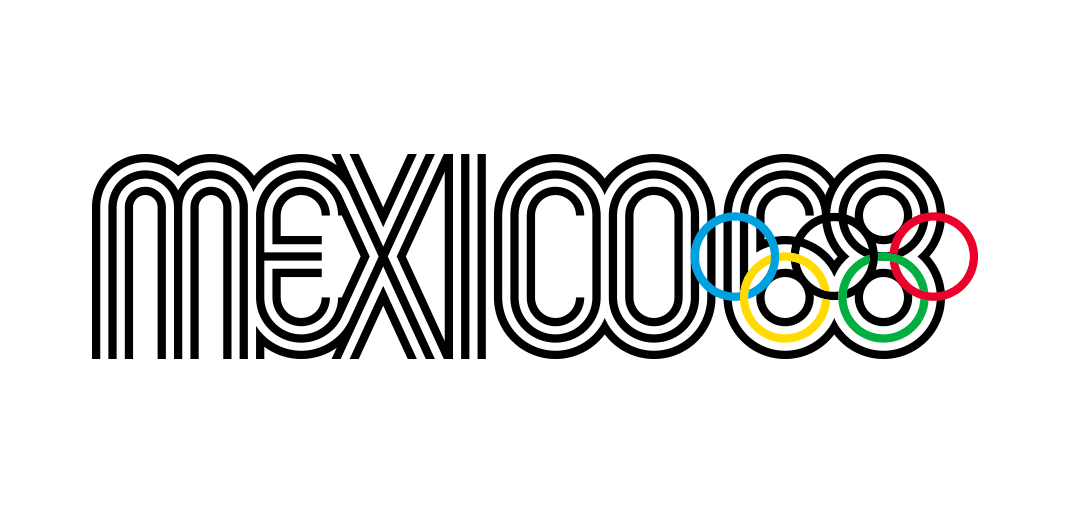The best pencil sharpener
Get the perfect point with the best pencil sharpener you can buy, electric or manual.
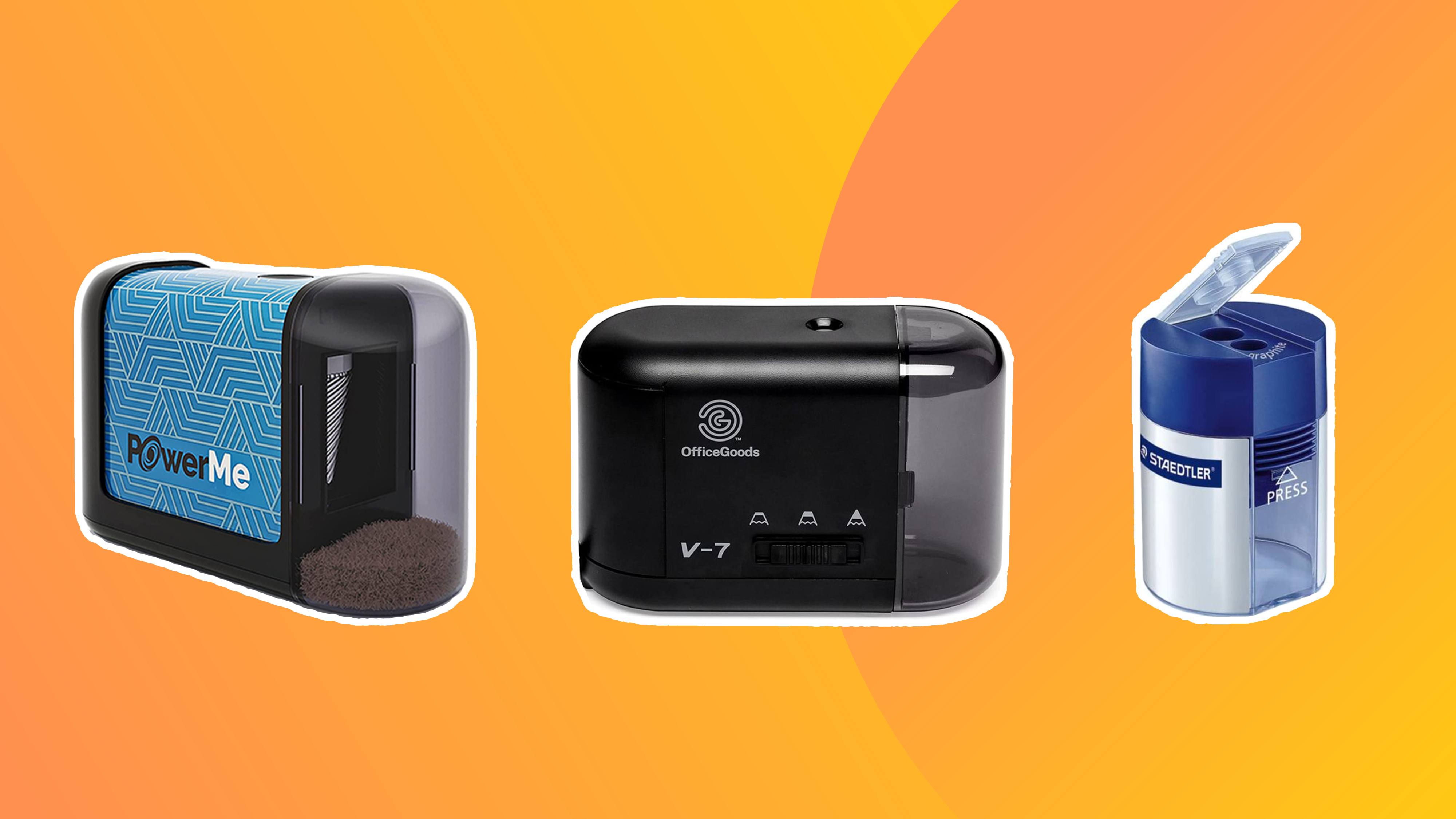
You may not think of the best pencil sharpeners as equipment that requires too much thought, but we all know that a substandard sharpener can spell chipped pencil ends and broken lead. Upgrading to one of the best pencil sharpeners ensures you have a decent tool that does the job, giving your pencil a fine, robust point quickly and easily (and unless you like mess, a container for wood shavings is a bonus).
If you've invested in one of the best pencils, it makes sense to get a sharpener that does it justice. In the guide below we round up the best pencil sharpers, starting with the best electric pencil sharpeners followed by the best manual pencil sharpeners (turned by hand). We've based our choices on size, build, quality, performance, value and reliability based on hundreds of customer reviews.
If you're looking for pencils to sharpen, see our guide to the best coloured pencils and if you want some that don't need sharpening, see the best mechanical pencils. For more art supplies, see our guide to the best easels and the best oil paints.
The best electric pencil sharpeners
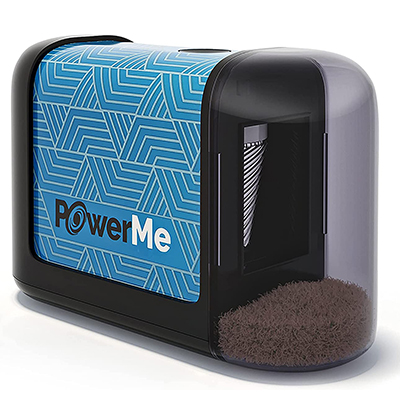
Best electric pencil sharpener overall
+ sharpens fast
+ Autojam release
- Batteries only
Our pick as the best pencil sharpener overall is light and compact. It’s portable, running on four AA batteries, and its heavy-duty rotating spiral drill takes only three seconds to sharpen to a perfect tip, reliably and consistently. There’s an auto-jam release system, so if your pencil gets stuck, just push down and it will be released.
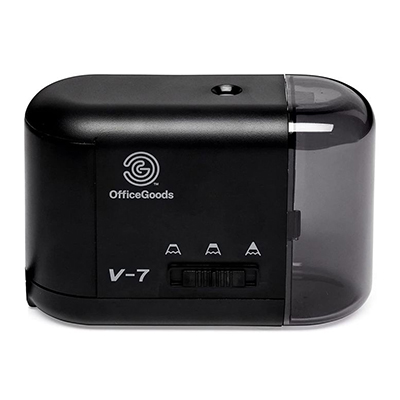
Best pencil sharpener for artists
+ sharpness settings
+ 3 ways to power
- Batteries not included
The utilitarian look and logo might not suggest it, but this is the best pencil sharpener for artists in our book. It’s so flexible. It sharpens in 10-15 seconds and works well on regular, coloured, charcoal and pastel pencils. It has blunt, medium and sharp settings for the perfect level of sharpness. It can be powered by four AA batteries, AC adapter or USB.
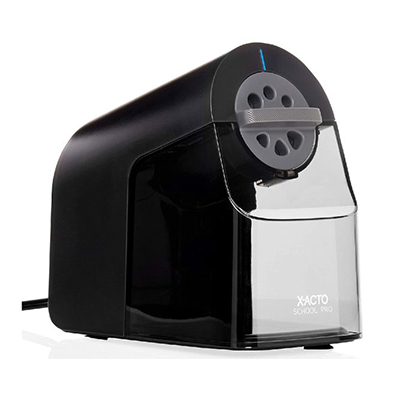
Best pencil sharpener for classrooms
+ Reduces breakages
+ Very durable
- Not the lightest
We all know how often kids need to resharpen their pencils, and this model can cope with a long queue without needing to rest. The fly-away cutter stops sharpening when it reaches its ideal sharpness, which really cuts down on breakages and the six-size dial fits a wide range of pencils. The slip-resistant bottom keeps things steady.
The best manual pencil sharpeners
The best manual pencil sharpeners
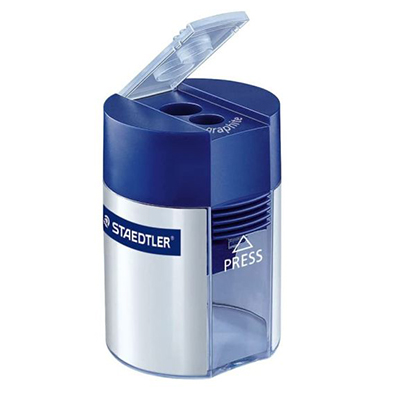
Best manual pencil sharpener overall
+ Fits two sizes of pencil
+ Compact and portable
- Takes some wrist power
This small but perfectly formed pencil sharpener has two holes: one for pencils up to 8.2mm, with a sharpening angle of 23 degrees for clear, accurate lines. The other for standard and coloured pencils up to 10.2mm, with a 30-degree angle for broad, soft strokes. It has a nice hinged cover to stop shavings spilling out.
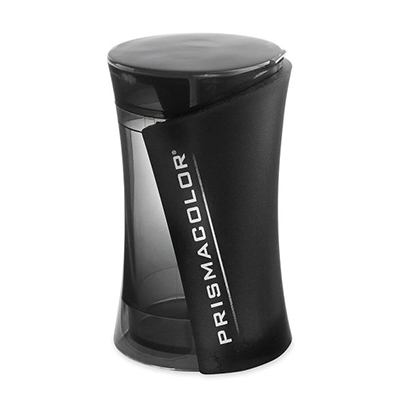
Best pencil sharpener for coloured pencils
+ Works with range of pencils
+ Fine or medium point
- Unnecessary for non-artists
Specifically designed to work with Prismacolor coloured pencils, this works well with any type of coloured pencil, as well as ordinary graphite, charcoal or pastel pencils and gives a sharp and robust point, time after time. It has two blades, one for creating a fine point for detail work, the other for a medium point, for broad coverage.
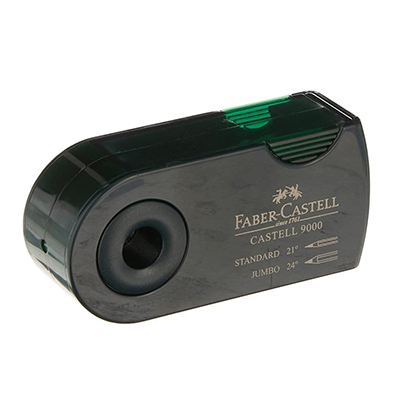
The best cheap pencil sharpener
+ Quality blade
+ Fits two pencil sizes
- Fairly basic
Our choice as the best pencil sharpener for value still does a great job of sharpening pencils thanks to its quality titanium-coated blades. It features two holes: one for standard pencils, cutting a 21-degree angle, and another for jumbo ones, cutting at 24 degrees. We found it works well with both graphite and coloured pencils.
How should I choose the best pencil sharpener?
The first thing to decide is whether you want an electric pencil sharpener or a manual pencil sharpener. The former require less effort to sharpen a pencil, using a helical cutting mechanism that turns using electric power. The downside is that of course they require power, be it batteries or a wall socket. They also tend to be more expensive. Manual pencil sharpeners need hand winding but are fully portable and usually cheaper.
Once you've made that decision, you'll need to consider what kind of pencils you need to sharpen, and how often you'll be sharpening them. In our guide to the best pencil sharpeners above, we've noted the size and type of pencil that each sharpener can be used for. If you use your pencil for art, you're more likely to want to spend a bit more for a sharpener that will keep them in good shape.
Get the Creative Bloq Newsletter
Daily design news, reviews, how-tos and more, as picked by the editors.

Tom May is an award-winning journalist and editor specialising in design, photography and technology. Author of the Amazon #1 bestseller Great TED Talks: Creativity, published by Pavilion Books, Tom was previously editor of Professional Photography magazine, associate editor at Creative Bloq, and deputy editor at net magazine. Today, he is a regular contributor to Creative Bloq and its sister sites Digital Camera World, T3.com and Tech Radar. He also writes for Creative Boom and works on content marketing projects.
- Georgia CogganEditor
